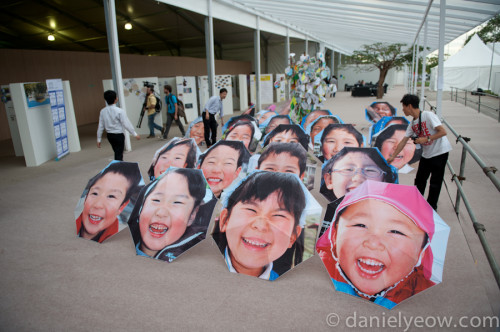Parting Shots
Yesterday was the final day of negotiations. The text was adopted, but it was very weak. The opportunity to really make a difference was squandered… or was it?
As far as the political process and the negotiations are concerned, very little progress was made. Countries have three years to come up with sustainable development goals (SDGs) and there was a small amount of progress towards protecting the world’s oceans, but moves to end fossil fuel subsidies and include strong language relating to women’s reproductive rights were met with resistance and ultimately the language was either removed or watered down so much as to be ineffectual.
But that’s not all that happens at these conferences. People meet and exchange ideas. I mentioned in a previous post that the events that happen around the conference are arguably more important than those negotiations. In many of the interviews which I conducted, the overwhelming feeling with the negotiations themselves is disappointment, but from the overall summit there was surprisingly a lot of optimism. “if the world leaders can’t do it, then it’s up to us” was the oft-quoted line. I spoke to a man who had brokered a voluntary commitment from 8 large development banks worth over a hundred billion dollars towards sustainable transportation infrastructure and monitoring. That would never have happened if it weren’t for all these people being in the one place for this conference, which on the surface seems not to have achieved very much.
Ultimately all of these problems are caused by people, and it is up to people to solve them. Governments certainly have a role to play, but we cannot and must not fall into the trap of pinning our hopes on them to come and save the day like the deus ex machina of a Greek play. Come election time, we’ll be voting for these guys over some stupid, irrelevant issue like interest rates or congestion pricing when we really should be standing up and demanding a better world for future generations. Politicians and governments come and go, but we the people are the ones who have to endure.
One of the major differences I felt between negotiators and the rest of the people at the conference is that of nationalism. Something I heard a lot in one form or another was that we all share one planet. This might seem obvious, but one of the reasons that the negotiations break down is because they have to think in terms of many different countries. The trouble with that is environmental and sustainability problems don’t care about national boundaries, and trying to solve these problems with that kind of thinking is likely to get you stuck… or unstuck.
I’m going to miss being here. Not just because of the beautiful natural setting of Rio de Janiero (which isn’t actually a river, btw), but because it’s nice to be surrounded by people who actually give a shit about more than just their immediate selves, and their immediate lives. I don’t begrudge people who think in such narrow terms since survival is a very natural and basic instinct, but I feel that the whole point of civilization is to go beyond that and build communities where we share both the rewards and responsibilities of our enhanced quality of life. For too long the rewards have been unequally, and unjustly distributed to the lucky few, while the responsibility – that is the costs – have been equally unjustly distributed to the vastly unlucky many.
To finish all my interviews, I asked “if you have a message for the leaders or people of the world, what would it be?” I’m not sure what I would say, but perhaps it would be something like “pay attention to what’s going on, and be a good world citizen”. Future generations deserve better than the narrow short term interests that the political cycle feeds us, we need political systems that reward leadership rather than cynicism, but above all that we also need leadership, in politics and beyond.
It’s much more difficult to lead than to follow, but these are challenging times which necessarily require difficult solutions. I encourage all of you to become leaders and to simply do your best to promote a fairer, more sustainable world for the future. It may cost you a lot of effort, but by collectively bearing the cost, imagine what we can collectively save – the world.



It’s really ironic how countries and policy makers are making a purely environmental concept into a free-for-all debate. They talk about trade, labour, piracy, intellectual property and everything under the sun in the same of the environment. And at the end of the day, no outcome is reached which will actually help the environment.